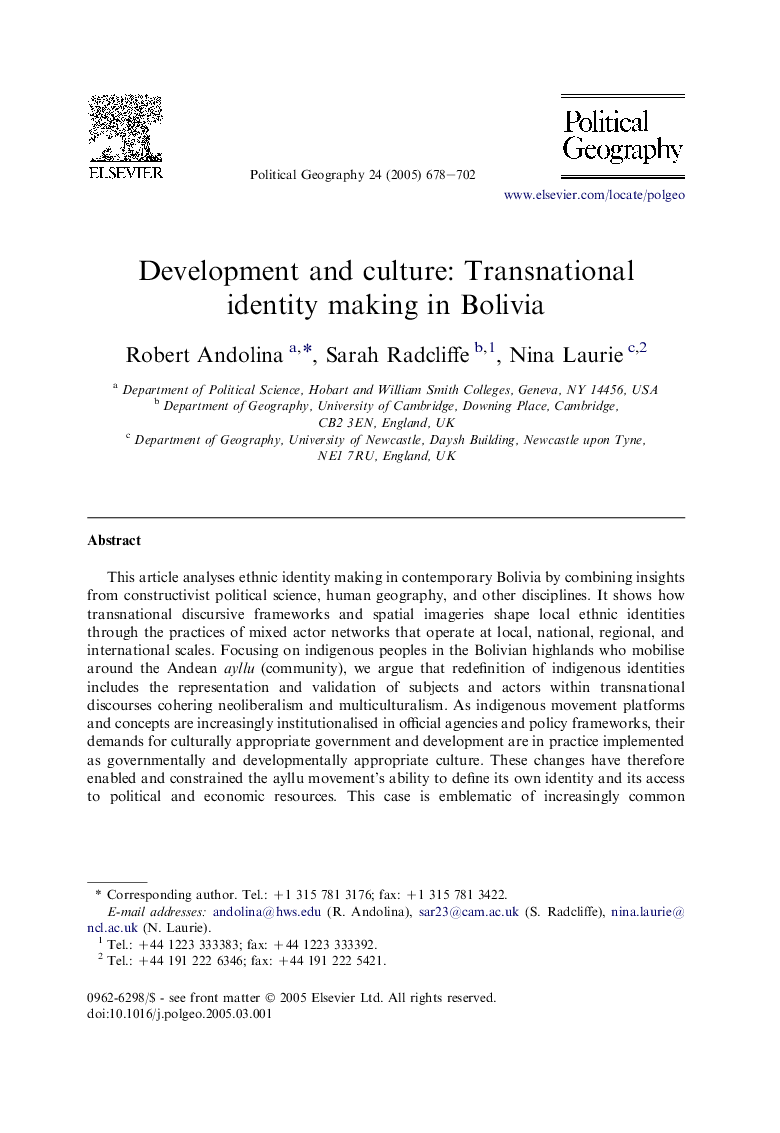| Article ID | Journal | Published Year | Pages | File Type |
|---|---|---|---|---|
| 10507690 | Political Geography | 2005 | 25 Pages |
Abstract
This article analyses ethnic identity making in contemporary Bolivia by combining insights from constructivist political science, human geography, and other disciplines. It shows how transnational discursive frameworks and spatial imageries shape local ethnic identities through the practices of mixed actor networks that operate at local, national, regional, and international scales. Focusing on indigenous peoples in the Bolivian highlands who mobilise around the Andean ayllu (community), we argue that redefinition of indigenous identities includes the representation and validation of subjects and actors within transnational discourses cohering neoliberalism and multiculturalism. As indigenous movement platforms and concepts are increasingly institutionalised in official agencies and policy frameworks, their demands for culturally appropriate government and development are in practice implemented as governmentally and developmentally appropriate culture. These changes have therefore enabled and constrained the ayllu movement's ability to define its own identity and its access to political and economic resources. This case is emblematic of increasingly common transnational processes where multi-scalar changes in political visions, language, policies, and funding flows converge to reconstruct identities.
Related Topics
Social Sciences and Humanities
Arts and Humanities
History
Authors
Robert Andolina, Sarah Radcliffe, Nina Laurie,
